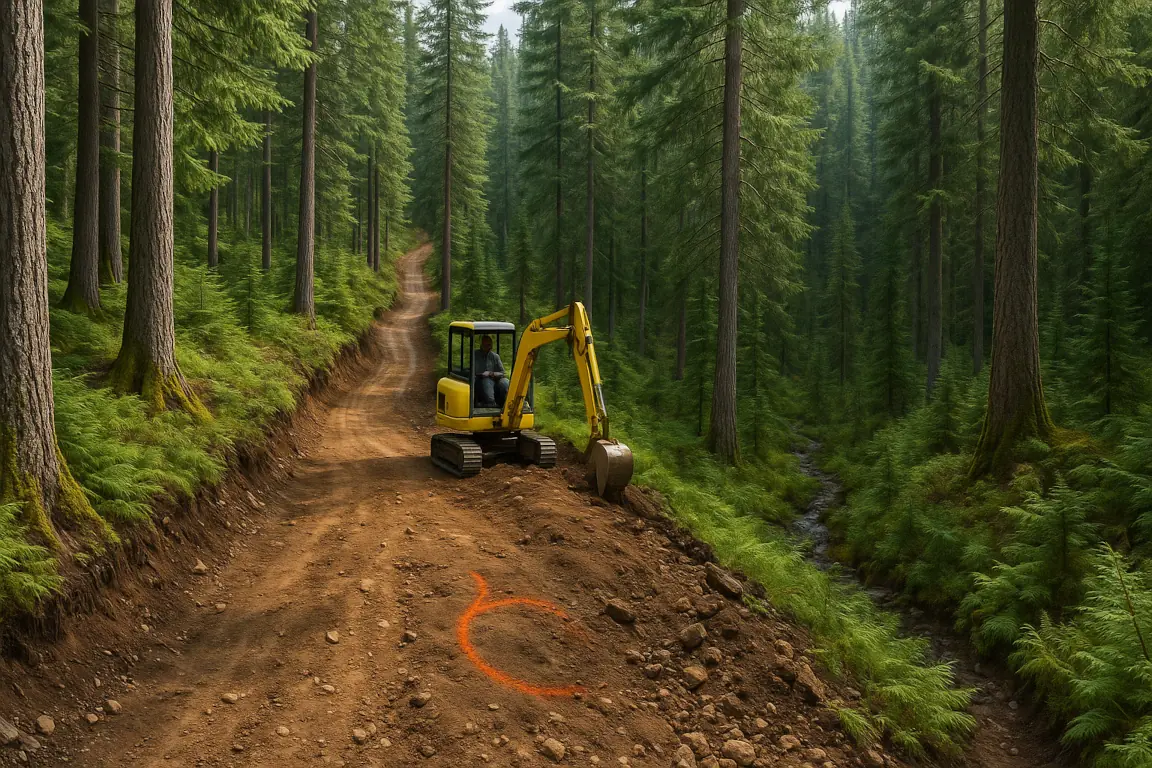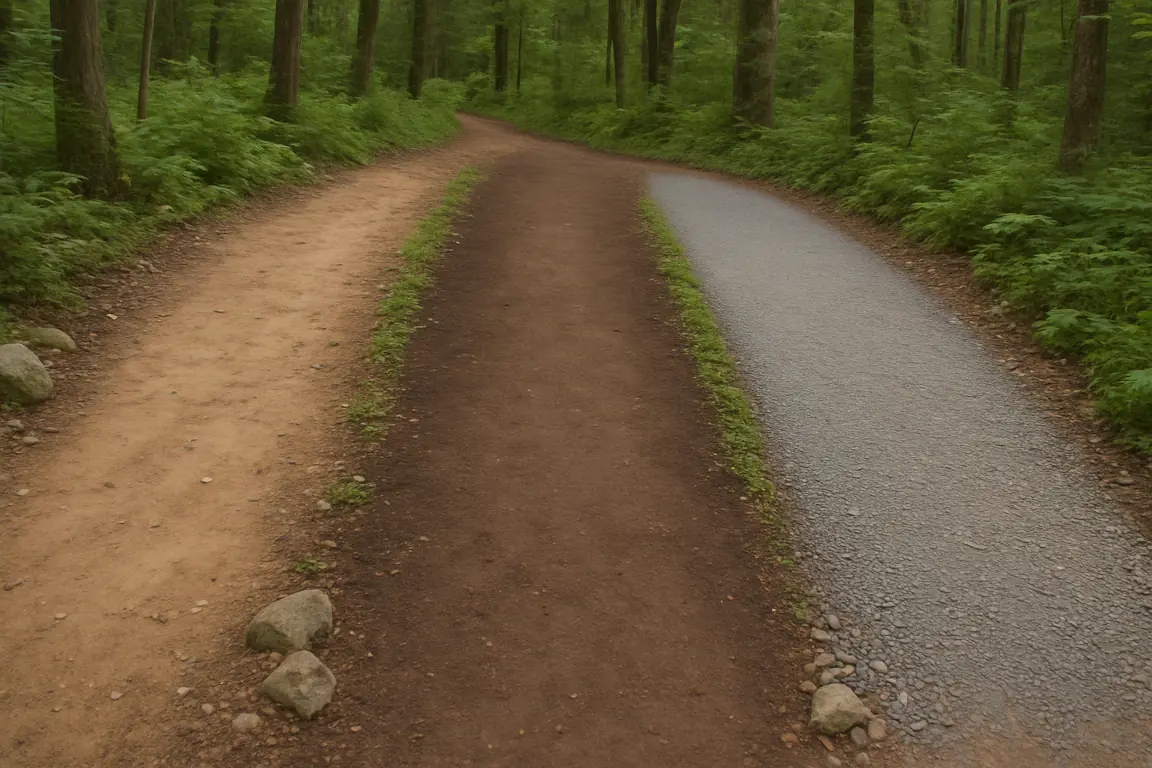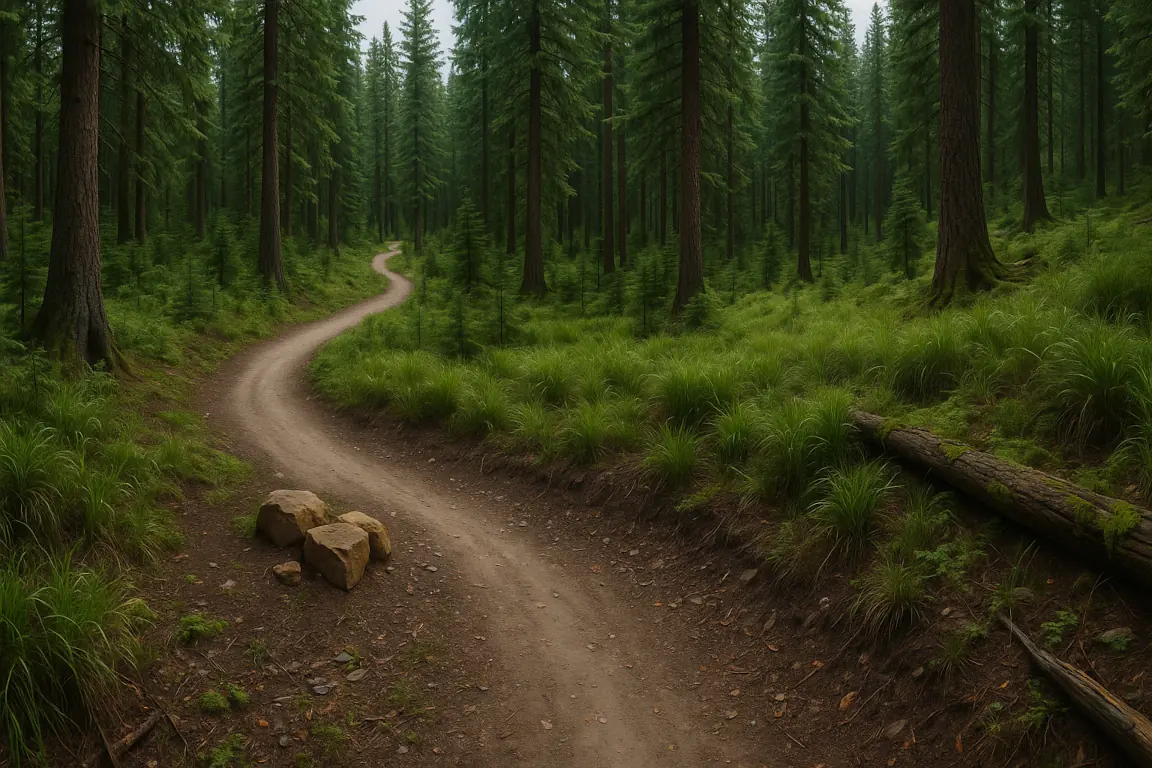Excavation Volume Calculator
Estimate cut/fill volumes for trail construction
Calculate precise cut and fill volumes for trail construction projects. Our calculator helps determine earthwork requirements based on trail width, side slope, and desired finished grade to optimize your trail building process.
Results will appear here
Enter dimensions in the form to calculate excavation volume
Note: This calculator is a guideline only. Results may include a margin of error. Always verify in the field.
Step-by-step guide to accurately estimating the amount of soil that needs to be moved for your trail building project.
Excavation Calculation Principles
The calculator applies key principles of trail excavation volume estimation:
- Basic Volume Formula: Length × Width × Depth for rectangular excavations
- Bench Cut Adjustment: Applies a 0.5 factor for typical bench cut triangular cross-sections
- Unit Conversion: Automatically converts between cubic feet, cubic yards, and cubic meters
- Weight Estimation: Calculates approximate weight based on common soil densities
Measure Trail Length
Measure the length of the trail section you're planning to build. For more accurate results, divide long sections into segments with similar characteristics.
Determine Trail Width
Measure or specify the width of your planned trail tread. For mountain bike trails, this is typically 2-4 feet for hand-built trails and 4-6 feet for machine-built trails.
Calculate Average Depth
Determine the average depth of excavation needed. For bench cuts, this is typically 1/3 to 1/2 of the trail width, depending on the sideslope.
Select Unit System
Choose between Imperial (feet, cubic yards) or Metric (meters, cubic meters) measurement systems based on your preference.
Review Results
Examine the calculated volume in cubic yards/meters and the estimated weight based on common soil types. Consider adding 20-30% to account for soil expansion after excavation.
Results Update Automatically
The calculator will instantly provide results as you change the input values. No need to click a calculate button.
When planning your trail excavation, keep these tips in mind to ensure efficient and accurate work.
Reuse Cut Material
For bench-cut trails, the excavated material (cut) can often be used as fill for the outer edge of the trail
Account for "Fluffing"
Excavated soil typically expands by 20-30% in volume when moved due to aeration
Consider Soil Type
Clay and wet soils are heavier than sandy or dry soils, affecting weight estimates
Section Large Projects
For larger projects, divide the trail into sections with similar excavation depths for more accurate estimates


